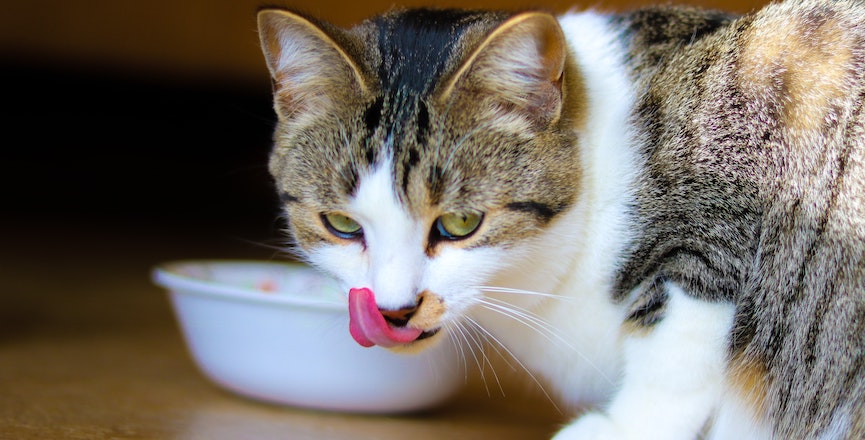The environmental implications of feeding eight billion people are enormous. That’s also true for keeping the ever-increasing population of domesticated animals fed, whether pets or livestock.
Just as there are better ways to feed people, there are better ways to feed animals. In some cases, it would be best not to raise or keep the animals at all, but for others, simple solutions could substantially reduce environmental damage.
With farmed animals, including fish, it’s about the ways we feed ourselves and the animals we eat. Extensive research shows that raising animals for meat, especially cows and sheep, creates massive environmental problems, from nitrogen runoff into waterways to greenhouse gas emissions, including methane.
A 2019 Lancet review concluded that “a diet rich in plant-based foods and with fewer animal source foods confers both improved health and environmental benefits.” It found switching to more plant-based diets and improving food production practices would help reduce negative impacts related to climate change, land system change, freshwater use, nitrogen and phosphorous cycling and biodiversity loss.
In the short term, we should strive to reduce some impacts of raising animals for food. One solution is changing their feed. Methane from livestock manure and “gastroenteric releases” (burps and farts) makes up about 32 per cent of human-caused methane emissions. Although methane remains in the atmosphere for a shorter time than carbon dioxide, it’s a deadly pollutant and, over 20 years, up to 80 times more potent as a greenhouse gas.
Researchers are exploring feeds made from or supplemented with everything from seaweed or algae to canola to reduce flatulence in cattle, and at ways to better treat, or even use, manure, such as covering or composting it, or using it to produce biogas. By simply mixing red seaweed into the fattening feed of 20 steers, University of California Davis researchers cut methane emissions by 80 per cent. However, critics point out this doesn’t address the far greater volume of emissions from pastured cattle.
Feed is also one area to help resolve a major environmental impact of companion and service animals. Cats and dogs, especially, consume a lot of meat. The estimated 8.2 million pet dogs and 8.3 million cats in Canada and 80 million dogs and 60 million cats in the U.S. often eat relatively high-quality meat products, so the impacts are substantial.
One study found “cats and dogs account for 25 to 30 per cent of the environmental impact of meat consumption in the United States, and are responsible for creating approximately 64 million tons of carbon dioxide each year.” They also produce millions of tonnes of poop every year, much of it individually wrapped before being sent to landfill, and some contaminating waterways with bacteria, viruses and parasites.
Finding a good source of protein and other essential nutrients with fewer environmental impacts is one solution. Several companies, including big ones like Nestlé-owned Purina, are marketing pet foods made with insect protein. An Ontario company, Hope, is using a mix of black soldier fly protein, chickpeas, yeast and algae.
I once suggested it would be better to feed farmed salmon insects than other fish. Brad Marchant heard, and founded Enterra (which I invested in). It uses black soldier fly larvae for fish and other animal feed. The larvae are rich in protein, calcium, phosphorous, iron and zinc and are easy to raise. Combining them with the other ingredients results in a pet food that’s healthier overall than meat-based products, with far fewer environmental impacts — and it has spinoff benefits, such as diverting waste to feed the insects.
A 2017 Dutch review found insect farming requires much less land and water than livestock, has lower greenhouse gas emissions and high feed conversion efficiencies, and is useful as animal or aqua feed. A U.S. company claims “an acre of land can produce about 192 pounds of beef annually, or 265 pounds of poultry,” but can yield “65,000 pounds of cricket or 130,000 pounds of black soldier fly larvae.”
Insects are also a healthy protein source for people around the world and may gradually gain greater acceptance here.
The interrelated climate and biodiversity crises are at a point where many solutions are needed. Changing how we feed the animals we keep can make a difference. It might even make our animal companions healthier.
David Suzuki is a scientist, broadcaster, author and co-founder of the David Suzuki Foundation. Written with contributions from David Suzuki Foundation Senior Writer and Editor Ian Hanington.
Learn more at davidsuzuki.org.
Image: Abeer Zaki/Unsplash




